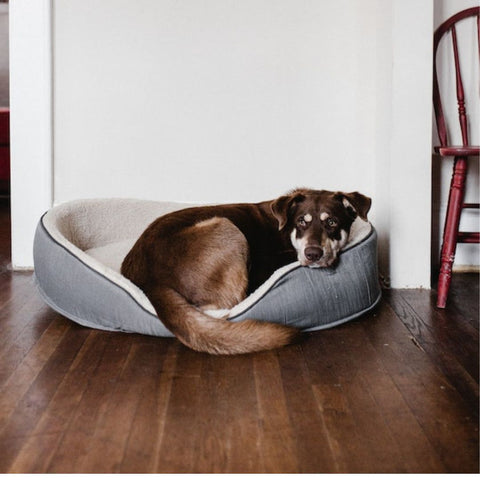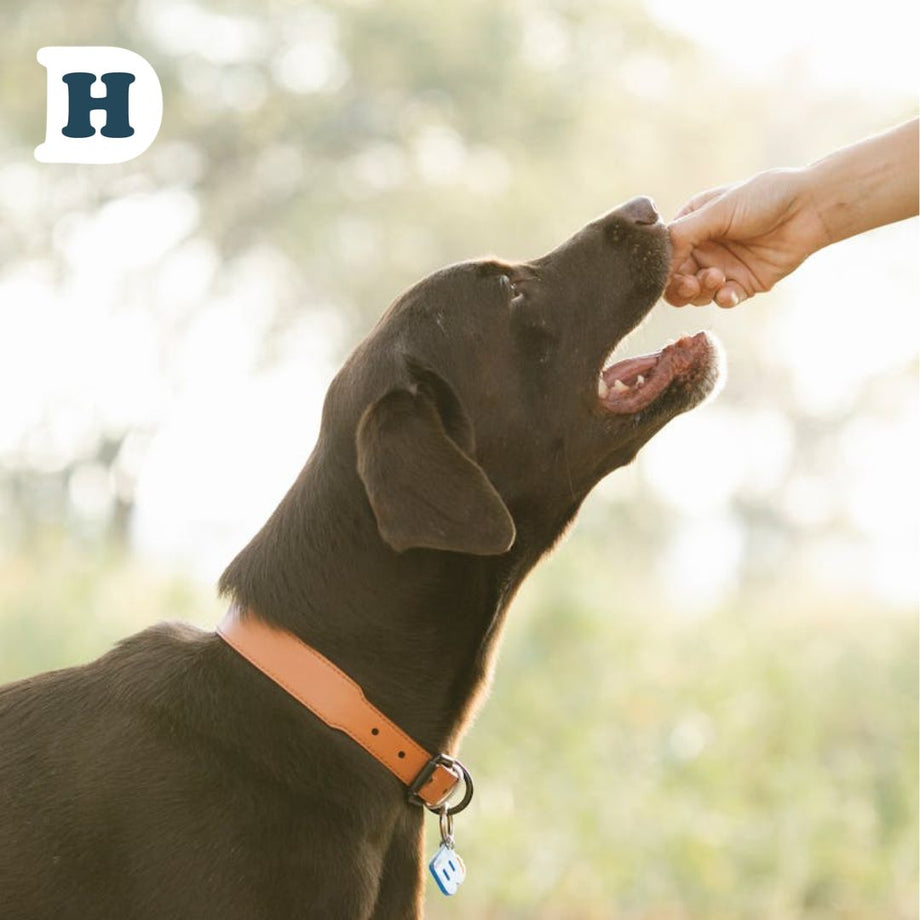 Calling all Australian dog owners! Are you familiar with the term "kennel cough"? It's a common ailment that can affect our furry friends, and it's important to understand how to treat and prevent it.
Calling all Australian dog owners! Are you familiar with the term "kennel cough"? It's a common ailment that can affect our furry friends, and it's important to understand how to treat and prevent it.
In this article, we'll give you the lowdown on canine kennel cough, covering everything from its symptoms and causes to the best treatment options available. We'll also delve into the preventative measures you can take to keep your beloved pets safe and healthy.
As a responsible dog owner, it's crucial to stay informed about the health issues that can affect our four-legged companions. So, whether you're a new dog owner or a seasoned pet lover, this article is a must-read.
Get ready to become a kennel cough expert and ensure the well-being of your furry friend!
What is canine kennel cough?
Canine kennel cough, also known as infectious tracheobronchitis, is a highly contagious respiratory disease that affects dogs. It gets its name because it commonly spreads in environments where dogs are in close proximity to each other. Although the name is no longer reflective of boarding kennels, the name kennel cough is caused by a combination of viruses and bacteria, the most common being the canine parainfluenza virus and Bordetella bronchiseptica bacteria. Canine Cough is now the commonly used term for this across Australia.
Canine cough is characterised by inflammation of the upper respiratory tract, including the trachea and bronchi. This inflammation leads to a persistent, dry, hacking cough that can be quite uncomfortable for your furry friend. The cough is often described as sounding like a honking goose or a seal barking.
Canine cough is usually not a life-threatening condition and can resolve on its own within a few weeks. However, in some cases, it can progress to pneumonia, especially in dogs with weakened immune systems or underlying health conditions. That's why it's important to monitor your dog closely and seek veterinary care if the symptoms worsen or persist.
In the next section, we'll explore the causes and transmission of canine cough, shedding light on how this disease spreads among dogs.
Causes and transmission of Canine cough
Canine cough can be caused by a variety of infectious agents, including viruses and bacteria. The most common culprits are the canine parainfluenza virus and Bordetella bronchiseptica bacteria. These organisms can be transmitted through the air when an infected dog coughs or sneezes, releasing respiratory droplets into the environment.
Dogs can also contract Canine cough by coming into direct contact with contaminated surfaces or through sharing water bowls, toys, or food with infected dogs. The bacteria and viruses responsible for canine cough can survive on surfaces for hours or even days, making it easy for dogs to pick up the infection.
Certain factors can increase the risk of dogs contracting canine cough. These include stress, overcrowded living conditions, poor ventilation, and a weakened immune system. Puppies, senior dogs, and those with pre-existing respiratory conditions are particularly susceptible to developing kennel cough. The incubation period of the disease is roughly 3-7 days.
In the following section, we'll discuss the common symptoms of canine cough, helping you recognise the signs in your furry friend.
Symptoms of Canine cough in dogs
Canine cough can cause a range of symptoms in dogs, with the most prominent being a persistent, dry cough. This cough is often accompanied by a honking or hacking sound, similar to a goose honk or a seal bark. The cough can be triggered by excitement, exercise, or pressure on the trachea, such as pulling on a leash.
In addition to coughing, dogs with kennel cough may display other symptoms, including sneezing, nasal discharge, and a mild fever. Some dogs may also experience loss of appetite, lethargy, and a decrease in energy levels. However, it's important to note that not all dogs with kennel cough will exhibit these symptoms, and some may only have a mild cough.
It's crucial to monitor your dog closely if you suspect canine cough, as the symptoms can worsen or progress to more serious respiratory infections. In the next section, we'll explore how kennel cough is diagnosed and the various treatment options available.
Diagnosing canine cough
If you notice symptoms of canine cough in your dog, it's important to seek veterinary care for an accurate diagnosis. Your veterinarian will perform a thorough physical examination and may recommend additional tests to confirm the presence of kennel cough.
The most common diagnostic method for canine cough is a combination of a physical exam and a detailed history of your dog's symptoms and potential exposure to infected dogs. In some cases, your veterinarian may also recommend a tracheal wash or a PCR (polymerase chain reaction) test to identify the specific infectious agents causing the cough.
Once canine cough is diagnosed, your veterinarian will work with you to develop an appropriate treatment plan. In the next section, we'll discuss the various treatment options available for kennel cough.
Treatment options for canine cough
In most cases, canine cough will resolve on its own within a few weeks without specific treatment. However, there are several treatment options available to help alleviate the symptoms and speed up the recovery process.
Your veterinarian may recommend antibiotics to combat any bacterial infections that may be present.
In addition to medication, it's important to provide supportive care for your dog during this time. Ensure your dog gets plenty of rest and avoid exposing them to cold or damp environments, as these can worsen the symptoms.
Preventing canine cough in dogs
Prevention is always better than cure when it comes to kennel cough. While it's not always possible to completely eliminate the risk, there are several measures you can take to minimise the chances of your dog contracting canine cough.
Vaccination is one of the most effective ways to prevent canine cough. The canine parainfluenza and Bordetella vaccines are specifically designed to protect against the common pathogens responsible for kennel cough. These vaccines are usually given as part of the routine vaccination schedule for dogs, and booster shots may be required annually.
Apart from vaccination, maintaining good hygiene practices is crucial in preventing canine cough. Clean and disinfect your dog's living area regularly, especially if they come into contact with other dogs. Avoid exposing your dog to crowded places or environments with poor ventilation, as these increase the risk of infection.
Proper nutrition and regular exercise also play a significant role in maintaining a strong immune system. Ensure your dog is getting a balanced diet rich in essential nutrients, and engage them in regular physical activity to keep them fit and healthy.
As an Australian dog owner, it's important to be aware of the specific precautions you need to take. In the next section, we'll discuss some additional considerations for Australian dog owners.
Learn more here about current vaccination schedules in Australia: A Comprehensive List of Vaccinations for Dogs in Australia
Precautions for Australian dog owners
Australian dog owners need to be aware of additional risks and precautions when it comes to kennel cough. Australia is home to several infectious diseases that can affect dogs, and kennel cough is no exception.
Another disease that Australian dog owners need to be aware of is leptospirosis. Leptospirosis is a bacterial infection that can be transmitted through contact with contaminated water or soil.
To prevent leptospirosis, avoid letting your dog drink from stagnant water sources and ensure they are up to date with their vaccination schedule. The leptospirosis vaccine is available and can provide protection against this disease.
Canine cough is a common respiratory disease that can affect dogs, including those in Australia. Understanding the causes, symptoms, and treatment options for kennel cough is crucial for every dog owner. By taking preventive measures, such as vaccination, good hygiene practices, and maintaining overall health, you can reduce the risk of your furry friend contracting canine cough. Remember to consult with your veterinarian for an accurate diagnosis and appropriate treatment if your dog displays symptoms of canine cough. With the right knowledge and care, you can ensure the well-being of your beloved pet and keep them safe and healthy.
More information is available here: What You Need to Know About Kennel Cough Transmission and Contagion
© DeliveryHound 2023






